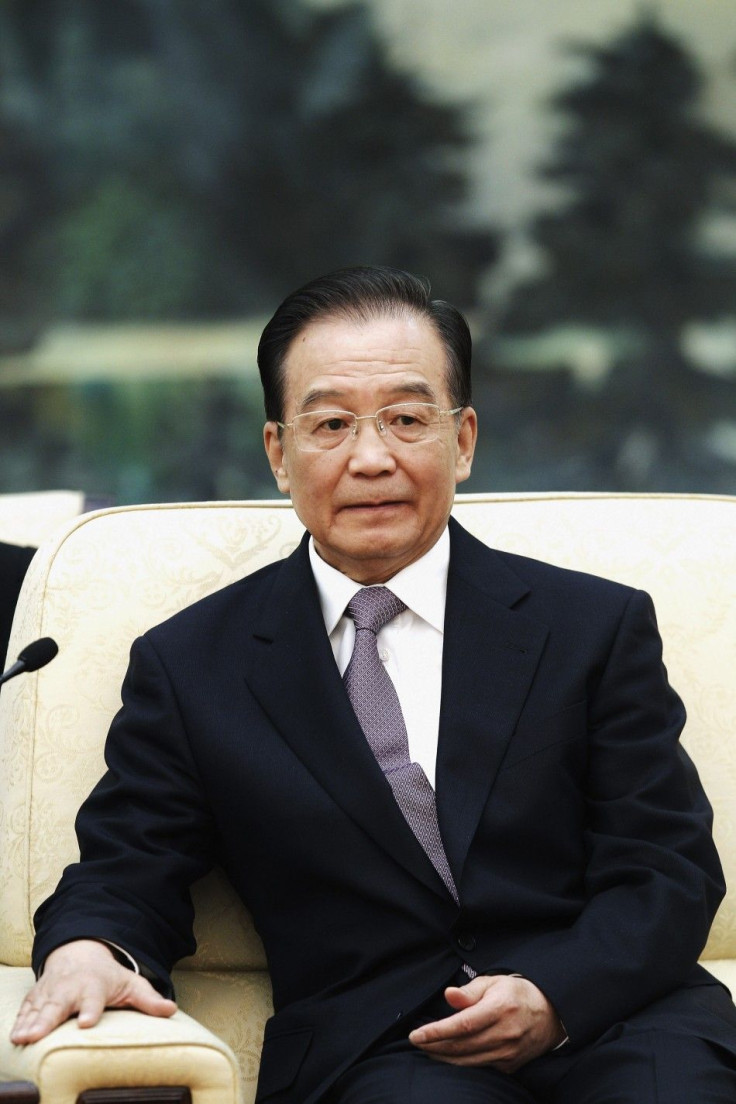China On A Latin American Pursuit With $10 Billion Loan Proposal; Calls For Push To Combat Protectionism

Wrapping up his Latin American tour, Chinese Premier Wen Jiabao on Tuesday announced a proposal to set up a $10 billion credit program for the developing economies to offer support for infrastructure projects.
Wen has also proposed a free-trade tie-up with the Mercosur bloc, comprising Argentina, Brazil, Paraguay and Uruguay, and called for a joint push to combat protectionism in international trade.
We have to combat trade protectionism, broaden the mutual openness of our markets, optimize the trade structure and diversify cooperation in terms of customs and quality control, Wen told the UN regional economic body ECLAC (Economic Commission for Latin America and the Caribbean) in Chile.
Wen said China will continue to offer economic assistance to countries in the regions that are interested, adding that his country aims to nearly double the trade with Latin America in five years to over $400 billion, Reuters reported.
China, world's No.1 exporter and a manufacturer of low-cost goods has been trying to earn international goodwill through funding Latin American infrastructure projects. The bilateral trade between the Asian giant and the resource-rich Latin America has been significantly expanding since 2004.
China's Latin American strategy is believed to be primarily economic and partly political. The bilateral trade presents a profitable scenario for both parties, where China can gain access to the raw materials necessary for its economic growth as well as find a market to export Chinese goods. Latin America, on the other hand, could benefit from Chinese technological expertise, manpower and deep funding to support infrastructural development.
Beijing is also looking for political support in its tug of war with Taiwan over autonomy from the Central America and the Caribbean, which continue to maintain diplomatic ties with Taiwan.
The Chinese Premier said China's Development Bank would set up a $10 billion credit line for infrastructure projects in Latin America, adding that Beijing would create a $5 billion fund for cooperation among China, Latin America and the Caribbean.
China wants to have more balanced trade with Latin America ... we hope that in the future we can import more types of products, including value-added products, Wen was quoted as saying by Reuters.
Alicia Barcena, the Executive Secretary of ECLAC, welcomed China's decision to improve trade ties.
It's very interesting that (Wen) came to the region to deliver a message that China isn't only interested in Latin America's and the Caribbean's raw materials, but that it wants a long-term strategic relationship, Barcena told Reuters. That's very good news for the region.
China is also considering the possibility of negotiating and signing agreements for local currency swap agreements ... and increasing the reciprocal creation of bank branches, Wen said.
Last week, China and Brazil finalized an agreement to exchange national currencies worth up to $30 billion as part of the bilateral efforts to shore up reserves in times of crisis.
China has been Brazil's largest trading partner for the last three years with a trade volume of more than $80 billion last year.
Analysts who attended the recently concluded G-20 summit said it made sense for emerging economies to adopt the currency exchange mechanism and that it shouldn't be seen as a threat to Western economic powers.
The BRICS are providing the same game to make the global economy work, Colin Bradford from the Centre for International Governance Innovation, a Canadian thinktank, was quoted in the China Daily.There is a way in which these kinds of revolutions can be healthy for the overall global community.
Wen and Brazilian President Dilma Rousseff also inked a 10-year cooperation pact for expanding investments and increasing exports of Brazilian goods to China.
China and Chile reached an agreement Tuesday to upgrade the trade ties to a strategic partnership, and double the trade in three years, Xinhua reported.
Both nations aim to enhance cooperation in mining, farm product trade and agricultural technology.
China also looks to support Chile's infrastructure development and promotion of building transportation networks in Latin America.
Over the years, trade with China, however, has presented certain problems for the Latin American economies. Since late 2008, Chinese goods have frequently been subject to antidumping investigations around the world and in Latin America and the Caribbean as well, ECLEC said in a paper released in May 2010.
Chinese exports to Central and South America have also been criticized for its crippling effect on Latin American economies in developing their own local industry. Latin American governments have also found that the high figures of Chinese FDIs (foreign direct investments) in the region are distorted by the use of tax havens, which obscure actual destinations.
© Copyright IBTimes 2024. All rights reserved.












